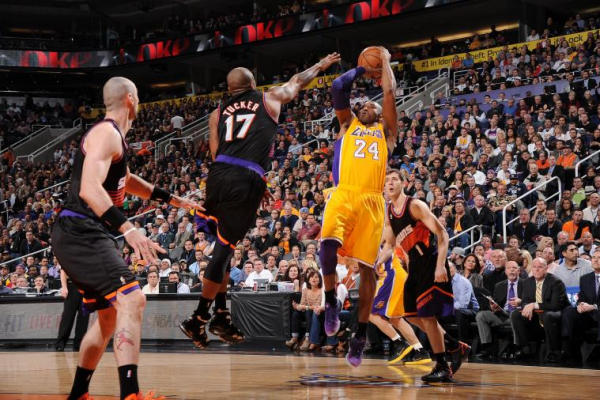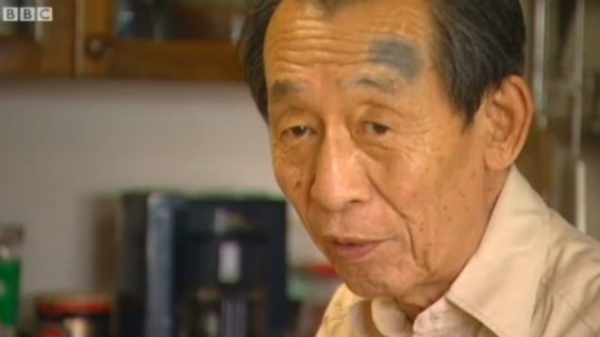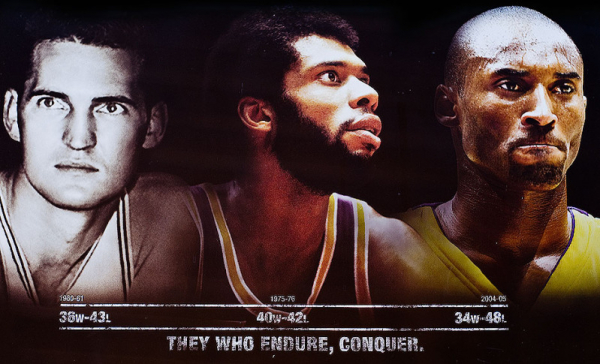I'd like to thank the Class Marshals for inviting me here today. The last time I was invited to Harvard it cost me $110,000, so you'll forgive me if I'm a bit suspicious. I'd like to announce up front that I have one goal this afternoon: to be half as funny as tomorrow's Commencement Speaker, Moral Philosopher and Economist, Amartya Sen. Must get more laughs than seminal wage/price theoretician.
Students of the Harvard Class of 2000, fifteen years ago I sat where you sit now and I thought exactly what you are now thinking: What's going to happen to me? Will I find my place in the world? Am I really graduating a virgin? I still have 24 hours and my roommate's Mom is hot. I swear she was checking me out. Being here today is very special for me. I miss this place. I especially miss Harvard Square - it's so unique. No where else in the world will you find a man with a turban wearing a Red Sox jacket and working in a lesbian bookstore. Hey, I'm just glad my dad's working.
It's particularly sweet for me to be here today because when I graduated, I wanted very badly to be a Class Day Speaker. Unfortunately, my speech was rejected. So, if you'll indulge me, I'd like to read a portion of that speech from fifteen years ago: "Fellow students, as we sit here today listening to that classic Ah-ha tune which will definitely stand the test of time, I would like to make several predictions about what the future will hold: "I believe that one day a simple Governor from a small Southern state will rise to the highest office in the land. He will lack political skill, but will lead on the sheer strength of his moral authority." "I believe that Justice will prevail and, one day, the Berlin Wall will crumble, uniting East and West Berlin forever under Communist rule." "I believe that one day, a high speed network of interconnected computers will spring up world-wide, so enriching people that they will lose their interest in idle chit chat and pornography." "And finally, I believe that one day I will have a television show on a major network, seen by millions of people a night, which I will use to re-enact crimes and help catch at-large criminals." And then there's some stuff about the death of Wall Street which I don't think we need to get into....
The point is that, although you see me as a celebrity, a member of the cultural elite, a kind of demigod, I was actually a student here once much like you. I came here in the fall of 1981 and lived in Holworthy. I was, without exaggeration, the ugliest picture in the Freshman Face book. When Harvard asked me for a picture the previous summer, I thought it was just for their records, so I literally jogged in the August heat to a passport photo office and sat for a morgue photo. To make matters worse, when the Face Book came out they put my picture next to Catherine Oxenberg, a stunning blonde actress who was accepted to the class of '85 but decided to defer admission so she could join the cast of "Dynasty." My photo would have looked bad on any page, but next to Catherine Oxenberg, I looked like a mackerel that had been in a car accident. You see, in those days I was six feet four inches tall and I weighed 150 pounds. Recently, I had some structural engineers run those numbers into a computer model and, according to the computer, I collapsed in 1987, killing hundreds in Taiwan.
After freshman year I moved to Mather House. Mather House, incidentally, was designed by the same firm that built Hitler's bunker. In fact, if Hitler had conducted the war from Mather House, he'd have shot himself a year earlier. 1985 seems like a long time ago now. When I had my Class Day, you students would have been seven years old. Seven years old. Do you know what that means? Back then I could have beaten any of you in a fight. And I mean bad. It would be no contest. If any one here has a time machine, seriously, let's get it on, I will whip your seven year old butt. When I was here, they sold diapers at the Coop that said "Harvard Class of 2000." At the time, it was kind of a joke, but now I realize you wore those diapers. How embarrassing for you. A lot has happened in fifteen years. When you think about it, we come from completely different worlds. When I graduated, we watched movies starring Tom Cruise and listened to music by Madonna. I come from a time when we huddled around our TV sets and watched "The Cosby Show" on NBC, never imagining that there would one day be a show called "Cosby" on CBS. In 1985 we drove cars with driver's side airbags, but if you told us that one day there'd be passenger side airbags, we'd have burned you for witchcraft.
But of course, I think there is some common ground between us. I remember well the great uncertainty of this day. Many of you are justifiably nervous about leaving the safe, comfortable world of Harvard Yard and hurling yourself headlong into the cold, harsh world of Harvard Grad School, a plum job at your father's firm, or a year abroad with a gold Amex card and then a plum job in your father's firm. But let me assure you that the knowledge you've gained here at Harvard is a precious gift that will never leave you. Take it from me, your education is yours to keep forever. Why, many of you have read the Merchant of Florence, and that will inspire you when you travel to the island of Spain. Your knowledge of that problem they had with those people in Russia, or that guy in South America-you know, that guy-will enrich you for the rest of your life.
There is also sadness today, a feeling of loss that you're leaving Harvard forever. Well, let me assure you that you never really leave Harvard. The Harvard Fundraising Committee will be on your ass until the day you die. Right now, a member of the Alumni Association is at the Mt. Auburn Cemetery shaking down the corpse of Henry Adams. They heard he had a brass toe ring and they aims to get it. Imagine: These people just raised 2.5 billion dollars and they only got through the B's in the alumni directory. Here's how it works. Your phone rings, usually after a big meal when you're tired and most vulnerable. A voice asks you for money. Knowing they just raised 2.5 billion dollars you ask, "What do you need it for?" Then there's a long pause and the voice on the other end of the line says, "We don't need it, we just want it." It's chilling.
What else can you expect? Let me see, by your applause, who here wrote a thesis. (APPLAUSE) A lot of hard work, a lot of your blood went into that thesis... and no one is ever going to care. I wrote a thesis: Literary Progeria in the works of Flannery O'Connor and William Faulkner. Let's just say that, during my discussions with Pauly Shore, it doesn't come up much. For three years after graduation I kept my thesis in the glove compartment of my car so I could show it to a policeman in case I was pulled over. (ACT OUT) License, registration, cultural exploration of the Man Child in the Sound and the Fury...
So what can you expect out there in the real world? Let me tell you. As you leave these gates and re-enter society, one thing is certain: Everyone out there is going to hate you. Never tell anyone in a roadside diner that you went to Harvard. In most situations the correct response to where did you to school is, "School? Why, I never had much in the way of book larnin' and such." Then, get in your BMW and get the hell out of there.
You see, you're in for a lifetime of "And you went to Harvard?" Accidentally give the wrong amount of change in a transaction and it's, "And you went to Harvard?" Ask the guy at the hardware store how these jumper cables work and hear, "And you went to Harvard?" Forget just once that your underwear goes inside your pants and it's "and you went to Harvard." Get your head stuck in your niece's dollhouse because you wanted to see what it was like to be a giant and it's "Uncle Conan, you went to Harvard!?"
But to really know what's in store for you after Harvard, I have to tell you what happened to me after graduation. I'm going to tell you my story because, first of all, my perspective may give many of you hope, and, secondly, it's an amazing rush to stand in front of six thousand people and talk about yourself.
After graduating in May, I moved to Los Angeles and got a three week contract at a small cable show. I got a $380 a month apartment and bought a 1977 Isuzu Opel, a car Isuzu only manufactured for a year because they found out that, technically, it's not a car. Here's a quick tip, graduates: no four cylinder vehicle should have a racing stripe. I worked at that show for over a year, feeling pretty good about myself, when one day they told me they were letting me go. I was fired and, I hadn't saved a lot of money. I tried to get another job in television but I couldn't find one.
So, with nowhere else to turn, I went to a temp agency and filled out a questionnaire. I made damn sure they knew I had been to Harvard and that I expected the very best treatment. And so, the next day, I was sent to the Santa Monica branch of Wilson's House of Suede and Leather. When you have a Harvard degree and you're working at Wilson's House of Suede and Leather, you are haunted by the ghostly images of your classmates who chose Graduate School. You see their faces everywhere: in coffee cups, in fish tanks, and they're always laughing at you as you stack suede shirts no man, in good conscience, would ever wear. I tried a lot of things during this period: acting in corporate infomercials, serving drinks in a non-equity theatre, I even took a job entertaining at a seven year olds' birthday party. In desperate need of work, I put together some sketches and scored a job at the fledgling Fox Network as a writer and performer for a new show called "The Wilton North Report." I was finally on a network and really excited. The producer told me the show was going to revolutionize television. And, in a way, it did. The show was so hated and did so badly that when, four weeks later, news of its cancellation was announced to the Fox affiliates, they burst into applause.
Eventually, though, I got a huge break. I had submitted, along with my writing partner, a batch of sketches to Saturday Night Live and, after a year and a half, they read it and gave us a two week tryout. The two weeks turned into two seasons and I felt successful. Successful enough to write a TV pilot for an original sitcom and, when the network decided to make it, I left Saturday Night Live. This TV show was going to be groundbreaking. It was going to resurrect the career of TV's Batman, Adam West. It was going to be a comedy without a laugh track or a studio audience. It was going to change all the rules. And here's what happened: When the pilot aired it was the second lowest-rated television show of all time. It's tied with a test pattern they show in Nova Scotia.
So, I was 28 and, once again, I had no job. I had good writing credits in New York, but I was filled with disappointment and didn't know what to do next. I started smelling suede on my fingertips. And that's when The Simpsons saved me. I got a job there and started writing episodes about Springfield getting a Monorail and Homer going to College. I was finally putting my Harvard education to good use, writing dialogue for a man who's so stupid that in one episode he forgot to make his own heart beat. Life was good.
And then, an insane, inexplicable opportunity came my way . A chance to audition for host of the new Late Night Show. I took the opportunity seriously but, at the same time, I had the relaxed confidence of someone who knew he had no real shot. I couldn't fear losing a great job I had never had. And, I think that attitude made the difference. I'll never forget being in the Simpson's recording basement that morning when the phone rang. It was for me. My car was blocking a fire lane. But a week later I got another call: I got the job.
So, this was undeniably the it: the truly life-altering break I had always dreamed of. And, I went to work. I gathered all my funny friends and poured all my years of comedy experience into building that show over the summer, gathering the talent and figuring out the sensibility. We debuted on September 13, 1993 and I was happy with our effort. I felt like I had seized the moment and put my very best foot forward. And this is what the most respected and widely read television critic, Tom Shales, wrote in the Washington Post: "O'Brien is a living collage of annoying nervous habits. He giggles and titters, jiggles about and fiddles with his cuffs. He had dark, beady little eyes like a rabbit. He's one of the whitest white men ever. O'Brien is a switch on the guest who won't leave: he's the host who should never have come. Let the Late show with Conan O'Brien become the late, Late Show and may the host return to Conan O'Blivion whence he came." There's more but it gets kind of mean.
Needless to say, I took a lot of criticism, some of it deserved, some of it excessive. And it hurt like you wouldn't believe. But I'm telling you all this for a reason. I've had a lot of success and I've had a lot of failure. I've looked good and I've looked bad. I've been praised and I've been criticized. But my mistakes have been necessary. Except for Wilson's House of Suede and Leather. That was just stupid.
I've dwelled on my failures today because, as graduates of Harvard, your biggest liability is your need to succeed. Your need to always find yourself on the sweet side of the bell curve. Because success is a lot like a bright, white tuxedo. You feel terrific when you get it, but then you're desperately afraid of getting it dirty, of spoiling it in any way.
I left the cocoon of Harvard, I left the cocoon of Saturday Night Live, I left the cocoon of The Simpsons. And each time it was bruising and tumultuous. And yet, every failure was freeing, and today I'm as nostalgic for the bad as I am for the good.
So, that's what I wish for all of you: the bad as well as the good. Fall down, make a mess, break something occasionally. And remember that the story is never over. If it's all right, I'd like to read a little something from just this year: "Somehow, Conan O'Brien has transformed himself into the brightest star in the Late Night firmament. His comedy is the gold standard and Conan himself is not only the quickest and most inventive wit of his generation, but quite possible the greatest host ever."
Ladies and Gentlemen, Class of 2000, I wrote that this morning, as proof that, when all else fails, there's always delusion.
I'll go now, to make bigger mistakes and to embarrass this fine institution even more. But let me leave you with one last thought: If you can laugh at yourself loud and hard every time you fall, people will think you're drunk.
Thank you.



